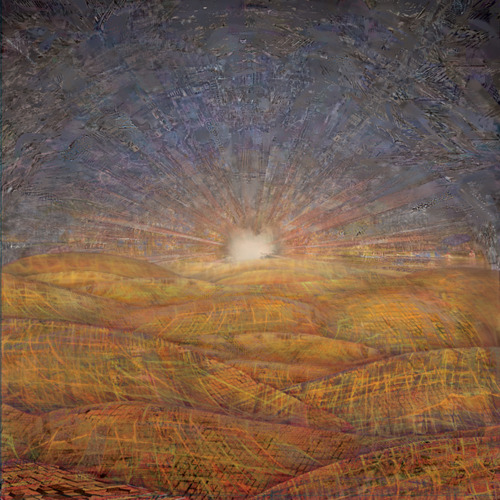Over the past year, the American indie rock scene has seen a small but notable influx of bands from the Sunshine State. Perhaps the most exciting of the group has been Merchandise, a trio who have become outliers to Tampa’s hardcore scene by expanding their sound into post-punk and new wave. Then there’s Levek, a Gainesville-based musician whose woodsy recordings have become the current torch-bearer for the sounds popularized by Animal Collective’s Feels. And in Orlando is XXYYXX, a young producer who has gained a sizable internet following with his wonky and downtempo-appropriating beats. It’s been a strange thing to witness, this random smattering of Florida bands who have all suddenly been able to reach audiences outside the state at the same time; not because Florida doesn’t have things going on musically (it does), but because it’s never really had an identifiable sound.
Usually, when a group of bands from the same area rise at the same time, it’s because they’re part of a scene that starts receiving attention, or they share a sound that is being popularized on a larger scale. But the members of this particular group don’t bear any similarities to each other besides being from Florida. None of them are the product of a scene or environment so much as they are of just personal drive and talent. This has been the story for Florida bands for a while now. Musically, the state is a hodgepodge of groups with different ideas, and rarely one will rise from the muck and find recognition. The press has never been able to latch onto a “Florida sound,” because one doesn’t exist. Hundred Waters are set to change that though.
While bands like Merchandise and Levek simply appropriate hallowed sounds in new ways, Hundred Waters are truly a band of their environment. To understand them, first you must understand this connection. The nickname of Hundred Waters’ hometown of Gainesville is “Gatorville,” and while the place may not, in the literal sense at least, be the swampy wetland a name like that implies, the idea is not lost on Hundred Waters. Like the foggy marshes Florida is known for, their sound is both earthy and crystalline; within the nuances of songs like “Thistle,” you can almost hear the clicks and chirps that accompany any foray into wild Floridian territory untouched by civilization, ethereal vocals helping contribute to a sense of unfamiliarity. It’s music that stands out because of its strong sense of place; the dainty “Thistle” and the folky “Sonnet,” with its lightly plucked acoustic guitars, are both best heard as playful explorations made into the marsh, while “Boreal,” with its pulsing electronic undercurrent, is a darker excursion.
Hundred Waters reach outside the Sunshine State for influence as well. On “Me & Anodyne,” and “Wonderboom,” the band’s off-kilter harmonies and percussion strongly recall Dirty Projectors, although they never come across as eccentric or straining themselves too hard. Their blending of organic and electronic instrumentation is seamless to the point of inconspicuousness; on “Visitors,” synths glow with every bit as much warmth as the flutes that accentuate the track’s coda. “Caverns” also draws parallels to Brooklyn’s Exitmusic, as far as its marriage of breathy vocals and electronic flourishes goes, but while Exitmusic use this formula to build towering, visceral, explosive blowouts, Hundred Waters are much more introverted, eschewing any sort of crescendo in favor of finding new directions to pitter-patter off into. “Boreal” is the best example of this, opening up with nimble piano lines about halfway through after building up through syncopated vocals in sync with the song’s fluorescent electronic base.
This introversion is also key to Hundred Waters’ music, and likely a big part of how they got here. It takes a certain degree of self-containment in order to encapsulate a place as well as Hundred Waters does, and it’s clear that the band has it. Where they go now is anyone’s guess; these days, the common thing for indie bands from Florida to do once they’ve had a whiff of success is to relocate. And after touring everywhere from New York to L.A. following the initial release of this record back in April, Hundred Waters are certainly capable of that. But regardless of whether they do or don’t, with Hundred Waters they have already provided a document of the place from whence they came. Introverted, encapsulating, provincial; it’s easy to imagine Hundred Waters’ world existing in a bubble. We can only hope that as their world expands and the band spends more and more time outside of the bubble, it doesn’t pop.

